And then ebola suddenly came very close
Eyewitness to an outbreak in Guinea
Read articlePoverty on the island of Aruba
Food aid without stigma
Read articleReading time 10 minutes
EYEWITNESS TO AN OUTBREAK IN GUINEA
And then ebola suddenly came very close
A deadly virus, misinformation and mistrust: Red Cross press officer Naomi Nolte encountered it all in the West African country of Guinea. During her first trip for our organization, she took part in the fight against Ebola. She also reported on the virus and our help.
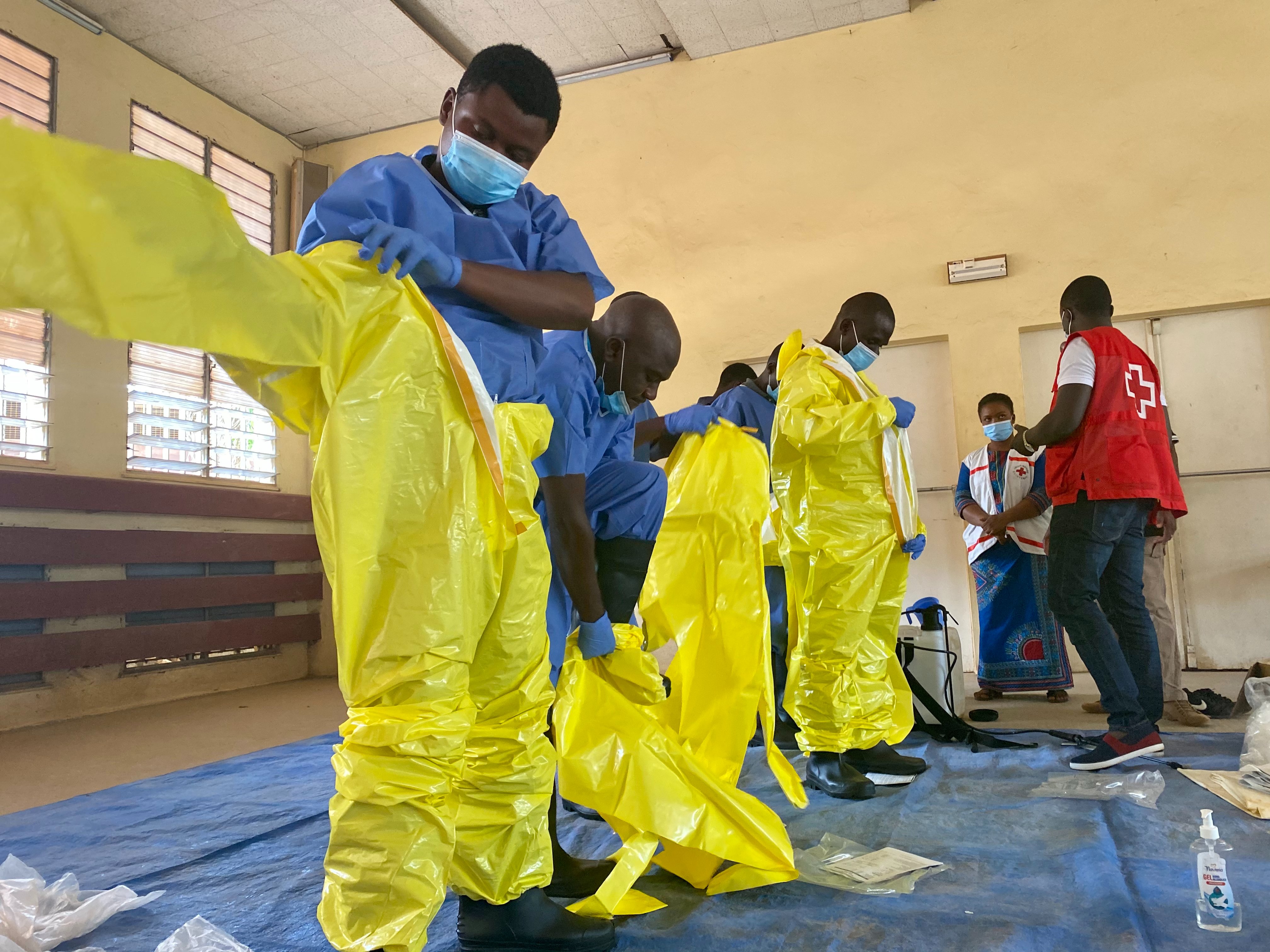
At the end of February, Naomi landed in the Guinean capital Conakry. However, the Ebola outbreak was in Nzérékoré, Guinea's second largest city in the southeast of the country. Because there were no flights to that area, the Red Cross press officer had to make a bumpy car trip of no less than two days through the West African landscape.
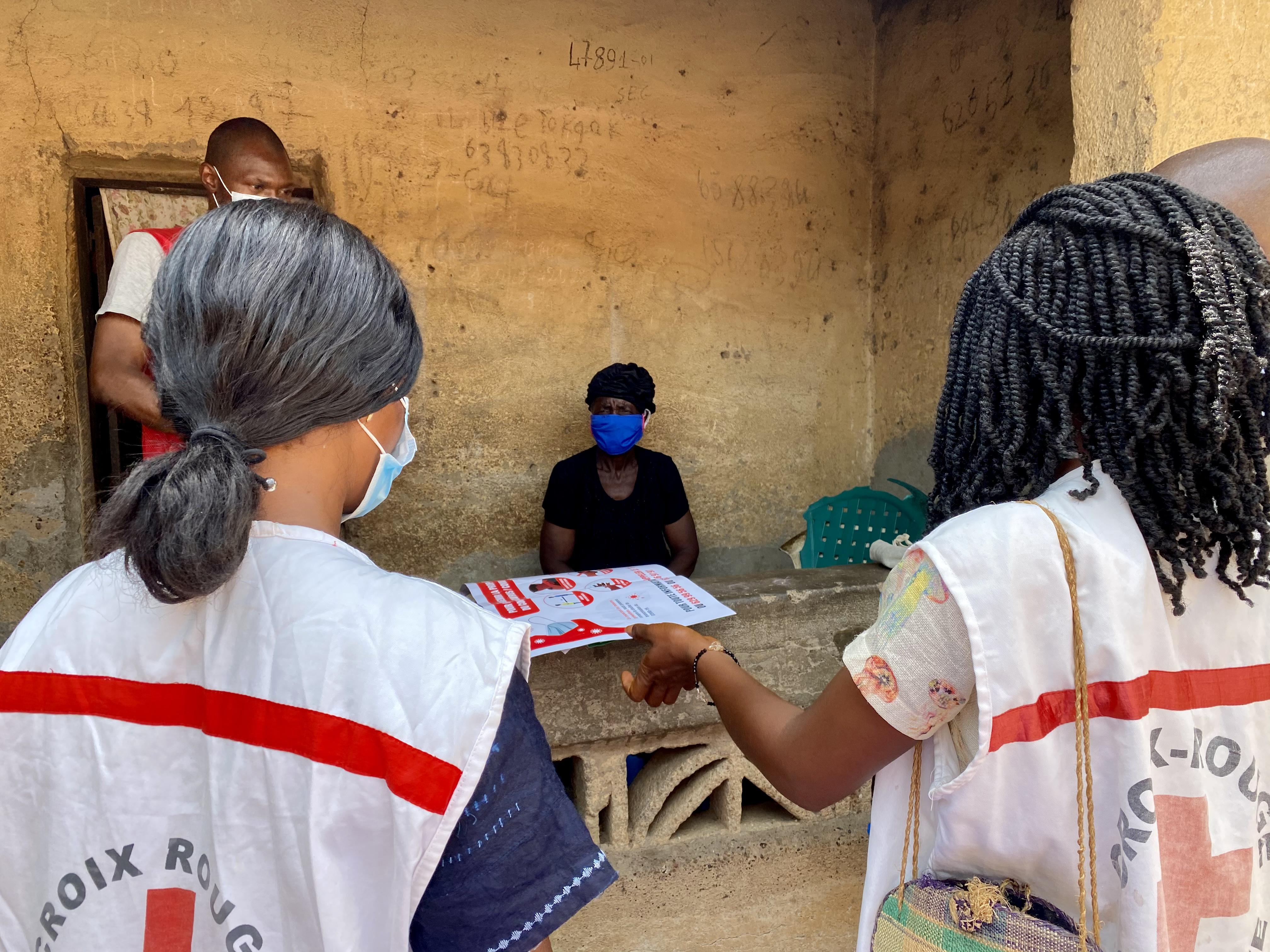
Immediately engaged to help with testing
As soon as Naomi arrived in Nzérékoré, she immediately got to work. The idea was to make video and stories about volunteers vaccinating against Ebola. This plan soon fell apart after a report of a possible new Ebola case.
Although only recently arrived, Naomi was asked to accompany the patient for testing. Naomi: "It was frightening, Ebola suddenly came very close. Despite the one and a half meters of distance you had to keep, because there is also that other virus, you hope everything will go well. The testers are wearing a suit and you are not. But as long as you clean everything thoroughly and don't touch potentially infected people, there should be nothing to worry about."
“There were volunteers who played the role of corpse, tester and receptionist”

Naomi Nolte with local aid workers
Gaining confidence
After these tense first days, things calmed down for a while. The Ebola outbreak in the country was relatively small, with about 23 cases believed to have occurred between February and May. The Guinean Red Cross used the rest of the period to continue training in Ebola relief. In this way, rescuers were well prepared for a possible new outbreak.
In addition to training, assistance also focused on information. The goal is to combat the myths that are going around about the virus. “Local volunteers go door to door to gain the confidence of the people,” explains Naomi. “Someone from your own community usually comes across as more credible; we wouldn't just take anything from an outsider, would we?”
First script ever
The quieter period also gave Naomi time to consider what people needed. Through the door-to-door conversations, conducted by local volunteers, it became clear that the Guinean population found the testing scary. People were especially upset that the dead also had to be tested. "Many thought that the test would not give them the opportunity to perform the funeral rites and that those providing aid would be looking for Ebola cases. But the tests were done precisely to rule out the possibility that someone had Ebola. In fact, 99% of the cases were negative."
To allay the fear, Naomi and the local Red Cross made a video explaining exactly how an Ebola test on a deceased person works. This removed the ambiguity and people were assured that the funeral rites could continue after the test.

"To make this video, everything had to be staged. That was a very crazy thing to do. This was the first time I wrote a script and thought about what story we wanted to tell with this video. And for something as important as Ebola. All volunteers who assisted were given a specific role. We had people playing themselves, but also volunteers playing the role of corpse, family member, tester or receptionist."
Red Cross atmosphere
What impressed Naomi a lot were the volunteers involved and the special atmosphere within the Red Cross. "I have the feeling that wherever you are in the world, there is always the same pleasant atmosphere among the Red Cross volunteers. I also noticed that atmosphere in Guinea. There was some fear and mistrust in the communities, yet the Guinean Red Cross volunteers were ready to help the people and continue helping them."
It was recently announced that the outbreak is under control and that Guinea is free from Ebola again, after four months.
FOOD AID WITHOUT STIGMA
Poverty on the island of aruba
Tourism in Aruba is slowly picking up again, but the consequences of the pandemic are still very noticeable. Our colleagues overseas are doing everything they can to provide help to the most vulnerable households. Marleen van der Borgt, interim chairman of the board of the Red Cross Aruba, looks back on a turbulent 2020.
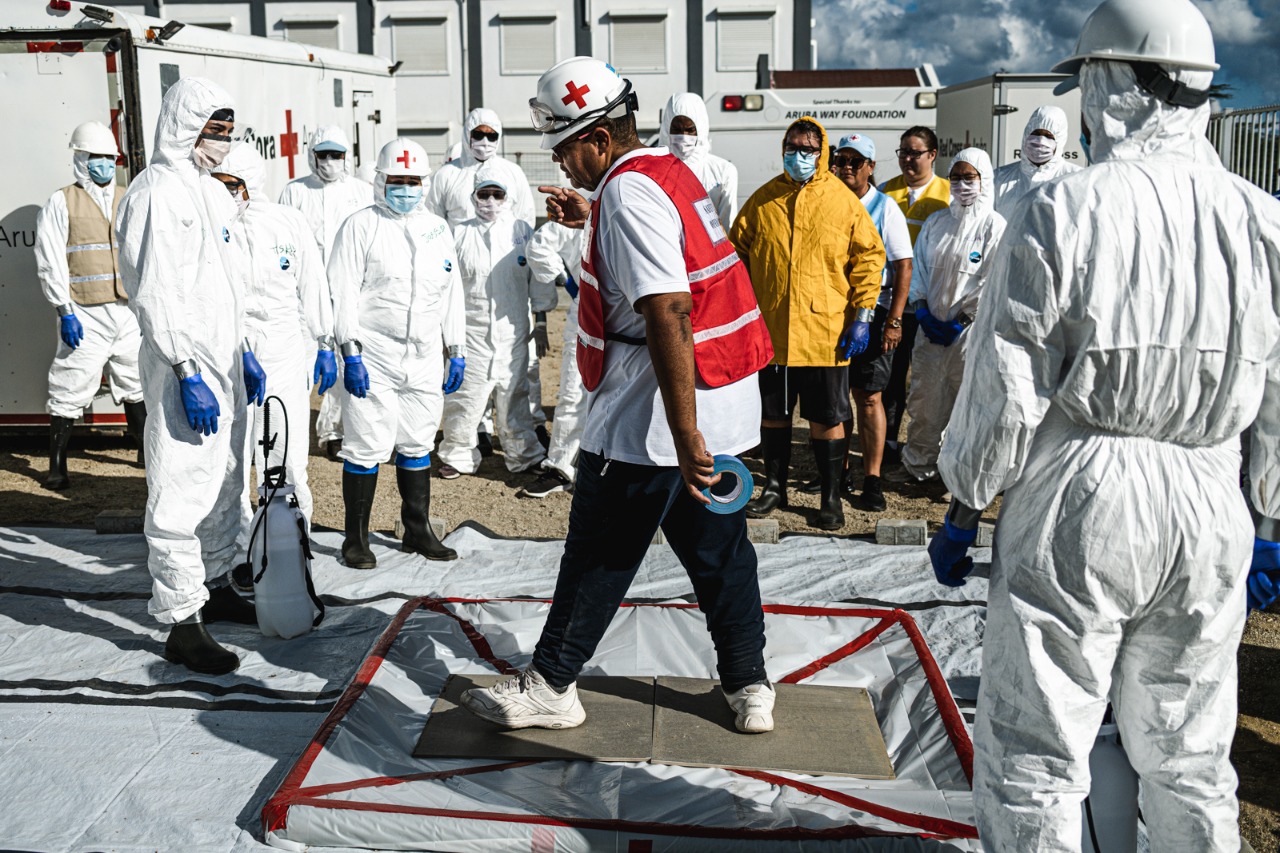
Code yellow or code orange? Can the catering industry open or should they remain closed? These are crucial questions for an island like Aruba, which is about 80% dependent on tourism. The past corona year was therefore difficult for the 'happy island', as this overseas part of the kingdom is affectionately called. Due to the dire economic situation, poverty was already high. After the collapse of tourism, people living a good life have become very vulnerable. The unemployment rate in June 2020 was a whopping 77.7%, a year earlier it was 7.3%. In addition, Aruba has to deal with many migrants from nearby Venezuela. Many of them work in the informal sector and, like many other islanders, are without income due to the corona crisis. They often knock on the door of the Red Cross for help.
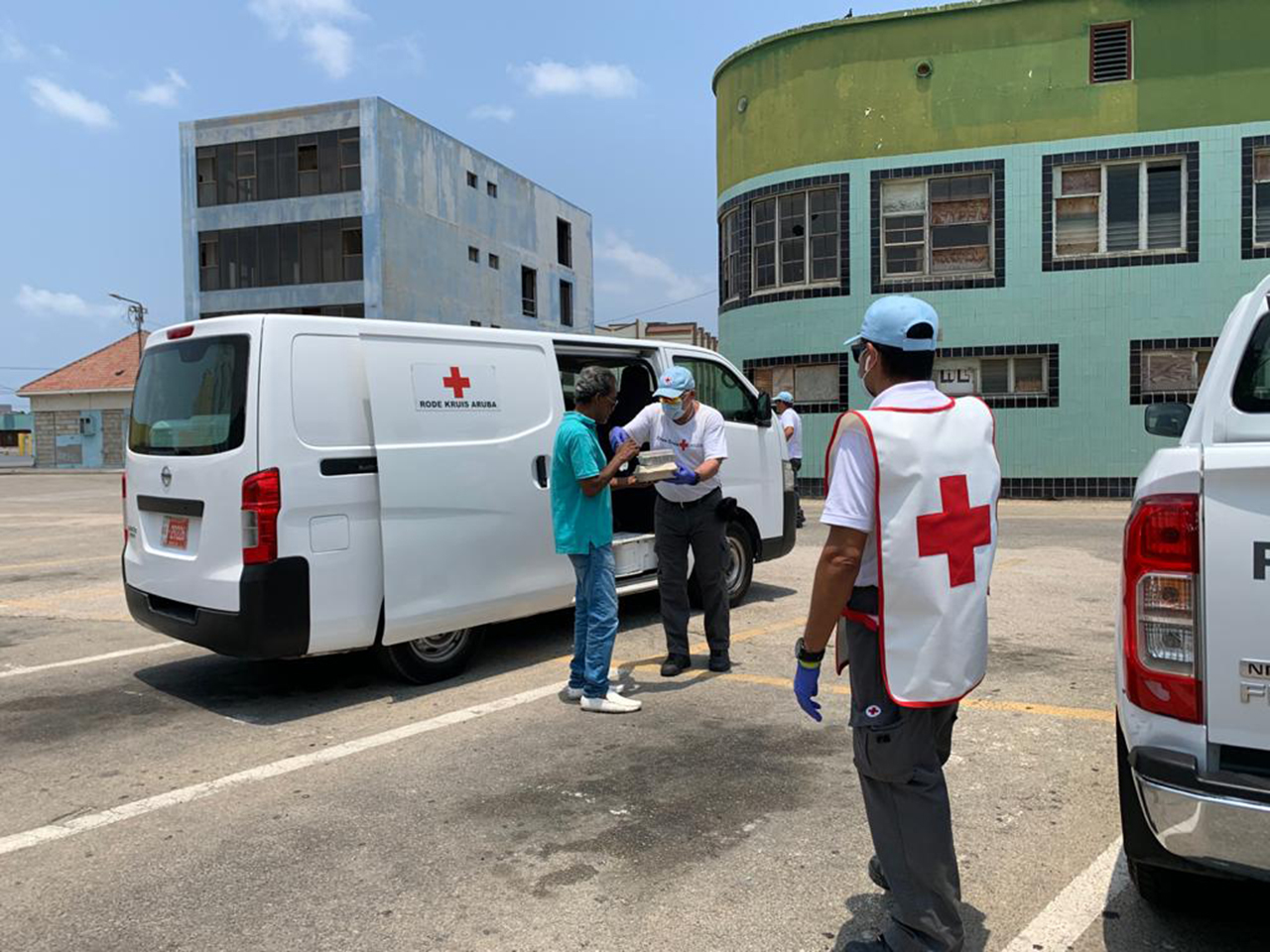
Vouchers and meals on wheels
Marleen van der Borgt: “On the island there is no fear of infections, but of the economic crisis. Within three weeks, all tourists disappeared from the island. No more cruise ships docking, no crowded terraces. All hotels were closed. Everything fell silent. Migrants were the first to find themselves without an income. We already had paper vouchers ready for this group with which they could do their shopping in the supermarkets as well as vouchers for medical costs. We scaled up the supermarket vouchers to two thousand per month. Not much later, more and more local people came knocking on our door. Little by little, because Arubans are very proud people. They want to solve their problems themselves as much as they can and do not easily show that they have little money. Many people like to present themselves well, with large cars, but at the same time they live in a small poorly maintained house with many family members. Nobody gets to see this slumbering poverty. People prefer to keep it hidden. If the money for rent and groceries then also runs out, the situation becomes untenable.”
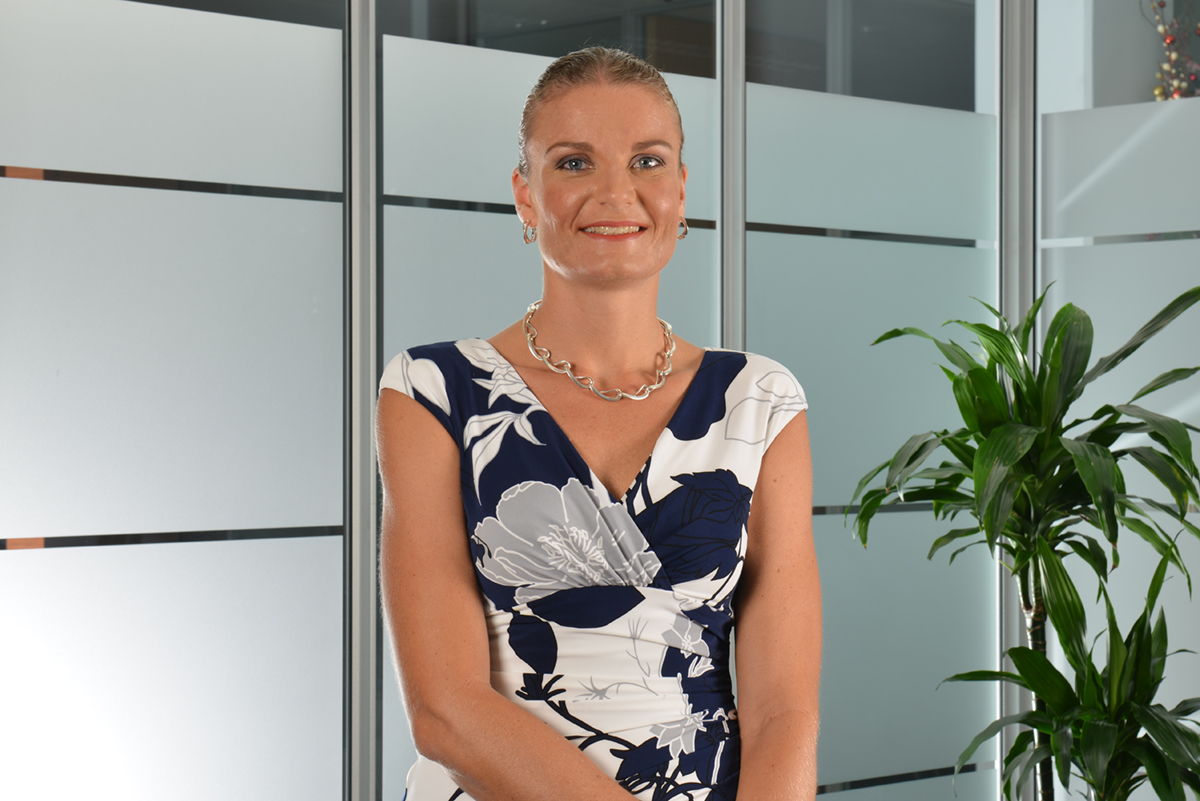
“Shopping with e-vouchers without anyone noticing that you are getting help”
People who are not able to cook or do their shopping were offered hot meals through the Red Cross, so-called meals on wheels. Marleen: "During the busy times of the year, we delivered 400 meals a day. Logistically, that was an enormous amount of work for which you need a large number of volunteers. Many young people and school drop outs signed up to help. Some of them literally worked day and night. We had to give a number of those helpers compulsory days off, to give them time to relax. The atmosphere was always very positive. Everyone wanted to do their very best and provide help wherever it was needed."
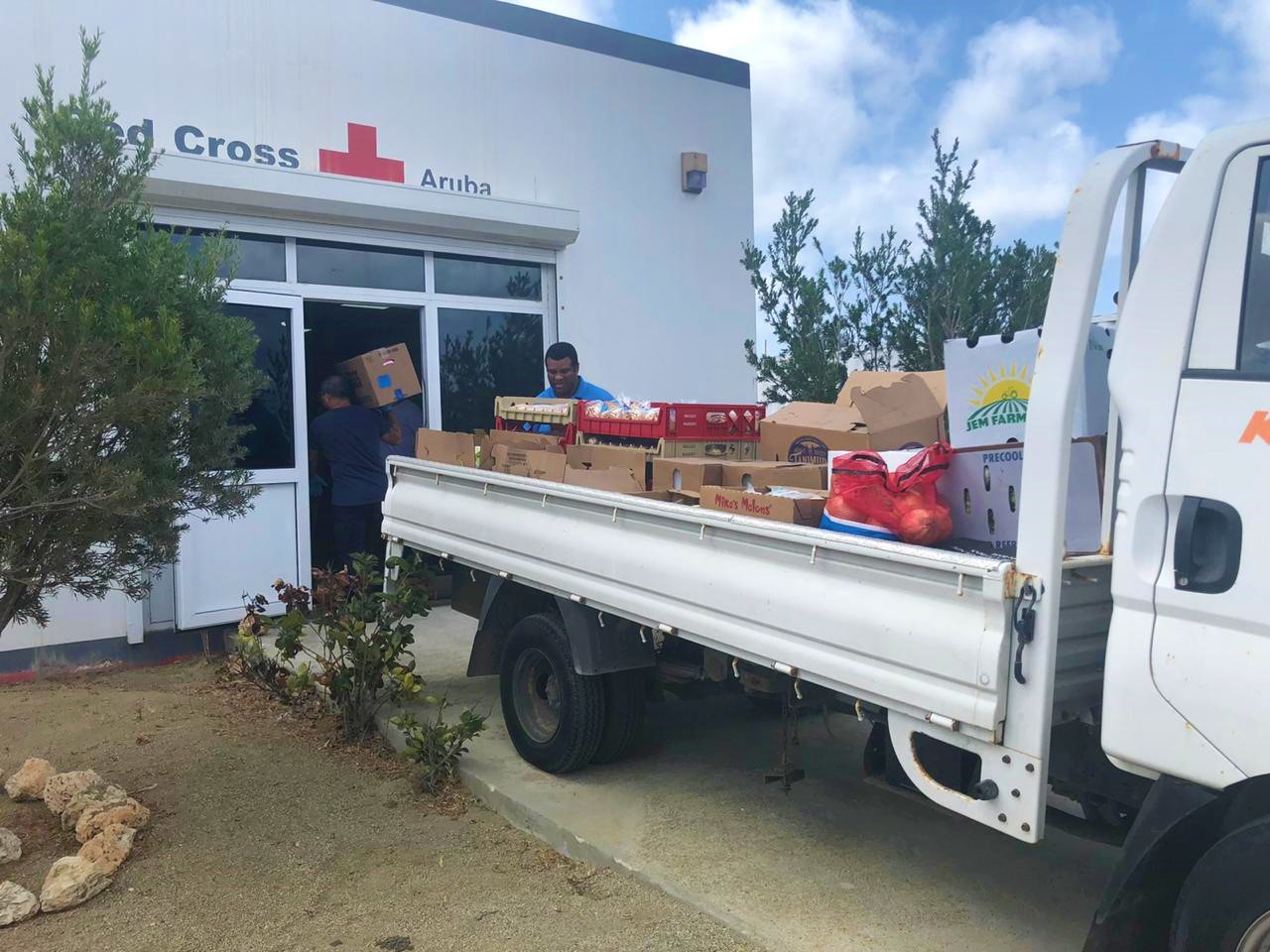
Your choice
With the growing group of needy people, the paper vouchers and hot meals were not enough and it was also too labour intensive. Within three weeks, the department introduced a system of e-vouchers. This allowed people to decide for themselves what to buy in the supermarket. The electronic card is handed out once and then charged remotely. The big advantage is that you can do your shopping without others noticing that you are getting help. And you choose the products you need yourself, with the exception of tobacco and alcohol. This sometimes leads to discussion, Marleen knows: "What people find important differs. If you want to buy a cake once because it is your son's birthday, that is not a basic necessity, but it is very important though. Self-determination is very valuable. This allows those involved to assess what they consider necessary."
In addition to the food program, the Aruban department also supported health care, provided psychosocial support and financial support for rent, electricity and school supplies. Marleen: "We also try to continue our regular programs as much as possible. A buddy program for lonely elderly people, first aid training and support for undocumented migrants. We can't just shut down these programs down. The corona assistance is added to this as an extra. Fortunately, we can count on many volunteers. We often put them in the spotlight. They absolutely deserved it, because without them we are lost."